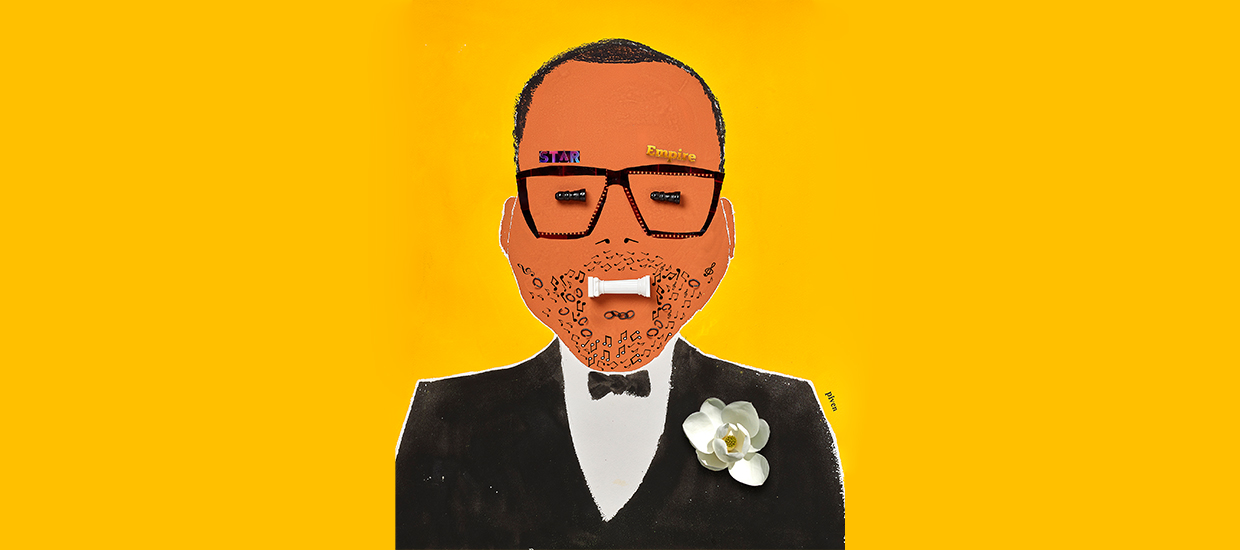Illustration by Hanoch Piven
As a gay Black filmmaker, Lee Daniels has been an exception rather than a rule.
In 2001, he produced the critically acclaimed Monster’s Ball, helping Halle Berry become the first and only Black woman to win an Oscar for Best Actress in a Leading Role.
Eight years later, he directed Precious. The film garnered a historic win for Geoffrey Fletcher, the first Black person to capture a screenwriting Oscar. With the hit Fox series Empire, which premiered in 2015, he offered a star-studded Black musical soap.
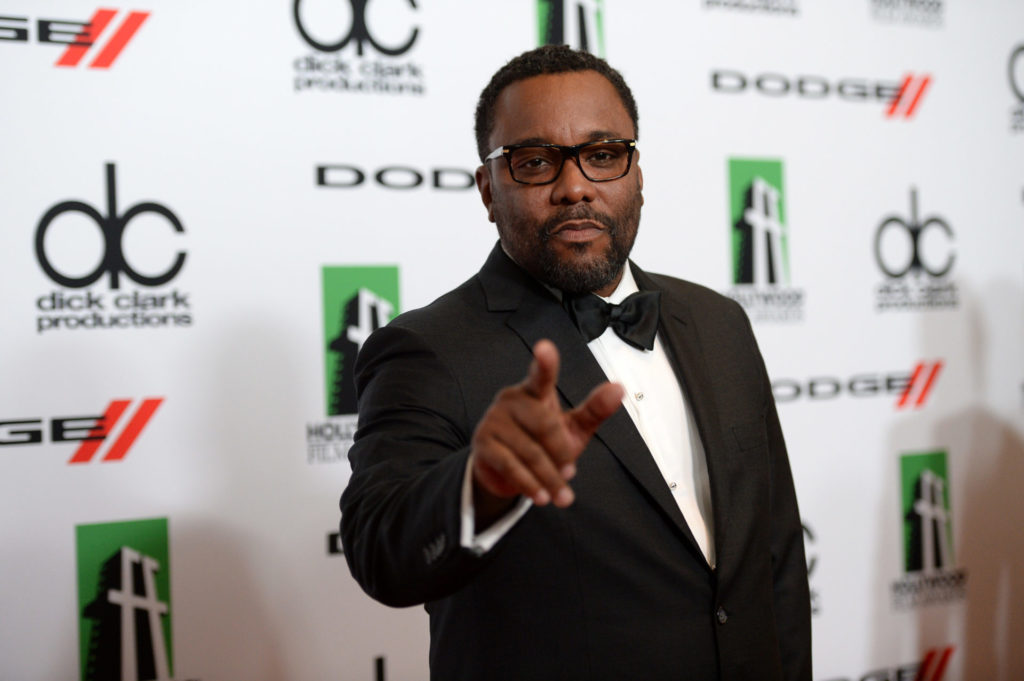
Daniels, a spiritual man, has spent two decades trying to make the exception of his career the rule.
“There wouldn’t be a Black Panther if there wasn’t an Empire. You have to think outside of the box, and you have to be unafraid to tell the stories you have in your soul,” he says on an impassioned Tuesday morning call in January. “It’s important also that the message I leave for young filmmakers, especially Black gay filmmakers, is, ‘You are special. Your voice is unique.’”
With the newly released The United States vs. Billie Holiday, starring Andra Day and Trevante Rhodes as Lady Day and undercover federal agent Jimmy Fletcher, respectively, Daniels is highlighting another unique voice—albeit one that was punished for her individuality.
Through an intimate lens, he recounts how the federal government tried to stop the songstress from performing “Strange Fruit,” her 1939 song about lynchings and racism, targeting her ostensibly for her drug use. Holiday’s story remains painfully relevant, and Daniels uses his idiosyncratic visual style—aided by a powerful script from Pulitzer Prizewinning playwright Suzan-Lori Parks and a transformative performance from Day—to explain one voice’s revolutionary power to break all the rules.
How did this story initially come to you?
It was based on Johann Hari’s book Chasing the Scream, which is really about [Harry] Anslinger [head of the Federal Bureau of Narcotics] and Jimmy Fletcher and Billie Holiday. Suzan-Lori Parks made it more about a love affair, as I wanted to just get a taste of the government. I also felt like the U.S. government was embodied in Jimmy Fletcher, because he was one of the first Black federal agents hired to take Billie down. I mean, you can’t make it up.
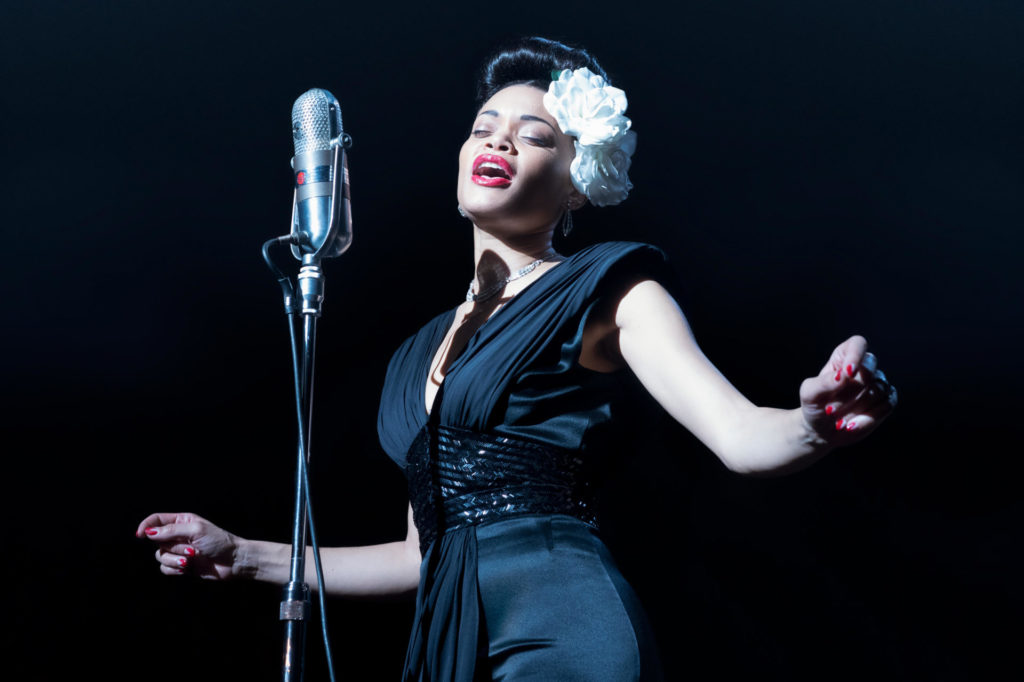
Initially, you didn’t want to cast Andra Day. Why were you hesitant to cast her, and what changed your mind?
I’m a director, so I like directing. But so many people told me, “You must see this singer.” It didn’t feel like it was an obvious choice. She hadn’t acted before. I already had some great women in mind who I thought were really great actors—almost stars, if you will. But the spirit told me to meet her. So we sat down for dinner, and I fell in love with her.
What in particular made you fall in love with her?
Energy? She also felt the same way I felt: She really wanted to do Billie justice, and she didn’t know whether she was the right person. And she wasn’t hungry for it. She’s a singer. She didn’t really know whether she could act. She was just honest. I found that that was very much the way Billie populated. I was smitten by her vulnerability, to say, “I don’t know whether I’m the girl for you.” With that, I sent her to an acting and a vocal coach and she came in to audition for me and blew me away. It was a wrap. She was the girl.
It’s exciting seeing Trevante Rhodes playing Jimmy Fletcher, who becomes Billie’s love interest. After Moonlight, I think everyone was waiting to see what he would do next, and it feels as if Hollywood hasn’t taken advantage of him. How did he come into the picture?
I went to him first, because we were looking to do something together. But Trevante was not excited about the first script. Then SLP [Suzan-Lori Parks], a brilliant screenwriter, came back with another draft. In the meantime, I had my eye on a few men to replace him. But after I met with all the other guys, I gave Trevante the new draft, and he said, “This is incredible. I want in.” I think the reason you haven’t seen him much since Moonlight is because he’s an artist; he’s not in a rush to be a movie star. That’s what makes the movie work, too. That’s why Andra is so convincing, and, more importantly, why you see a kind of chemistry you rarely see on screen with Black people.
I read that Lady Sings the Blues, the 1972 Billie Holiday biopic starring Diana Ross, made you want to be a director.
Lady Sing the Blues is so precious to my life. I was terrified to do a Billie Holiday biopic, I wanted to make people feel the way I felt when I was a kid watching that movie. I actually called Berry Gordy beforehand and said, “Mr. Gordy, can I do this movie? ” He said, “As long as you’re telling it with justice, man.” I knew Andra wasn’t Diana Ross, so I had to get that image out of my head.
One of the first assignments I gave to the actors was to sit down and watch Lady Sings the Blues. But by me showing Andra and Trevante the film, they understood the chemistry between Diana Ross and Billy Dee Williams. They had to do a modern-day version of that chemistry.
They have fantastic chemistry. There are so many, for lack of a better term, intimate scenes between them. It made me think of Nicole Kidman’s performance in The Paperboy—you’re able to get stars to be sexually free. How do you get actors comfortable with that level of intimacy?
I don’t know whether it’s about being sexually free but being free in your head. With all of my work, from Halle Berry in Monster’s Ball to now, I try to capture the human spirit: the good, the bad, the ugly, the beautiful, the painful, the sexual, and the humorous. We need to see fourdimensional, five-dimensional people, because that’s who we are. Especially as Black people. I want to show us in all of our dimensions.
The United States vs. Billie Holiday is a very unconventional biopic, especially with the color grading and black-and-white scenes. What was your visual thesis for this film?
I didn’t want to do a conventional film. I wanted it to make you feel like you were a little high, a little jazzed. Since this isn’t a normal biopic, it needed something different.
You have such a distinct, misunderstood style…
Talk to me about that.
I remember back in 2012 when the AV Club ranked The Paperboy as the worst film of the year. But when you look at the film, its lurid tone is astutely taking cues from Tennessee Williams’s Southern Gothic style. I think the alluring tone of the drama threw people off.
What’s great about my work is I’m not marching to anybody else’s tune but my own. Whether the critics enjoy it or they don’t enjoy it, what I want is for you to enjoy it. I want you to walk out and say, “I’ve never seen anything like that. And I’ll probably never see anything like it again—unless I go to a Lee Daniels film.”
With Lee Daniels’ The Butler, you reinterpreted historical figures through a somewhat fictional lens. You’re very playful with using history for dramatic purposes. Was there any temptation to do the same here?
When you’re telling Billie’s story, it’s too important. At the end of the day, it is a film, but I really wanted to honor her. I got into this so her story could finally be told. I made some stuff up, such as Jimmy Fletcher’s mom, because I couldn’t find much information about him or his family. Also, I wanted to show Black opulence, and I wanted a perspective from Black people who were rooting for her who weren’t part of her camp.
You end The Butler on such a hopeful note: Obama as a post-racial balm. Part of the impetus of The United States vs. Billie Holiday stems from how a federal anti-lynching bill has not passed in Congress. Has your thinking changed between then and now in terms of the hope you have for race relations in America?
When I did The Butler, it was about hope. You had Cecil, the butler, walking through the White House to see President Obama. There was a Black man in the Oval Office, and it was incredibly great. The United States vs. Billie Holiday was made with Trump in office. This movie began before George Floyd—Suzan-Lori Parks wrote this screenplay before the events of the summer took place—but the mood was in the air. That’s God working. I’ll know what my next project will be because I’ll be led by the spirit.
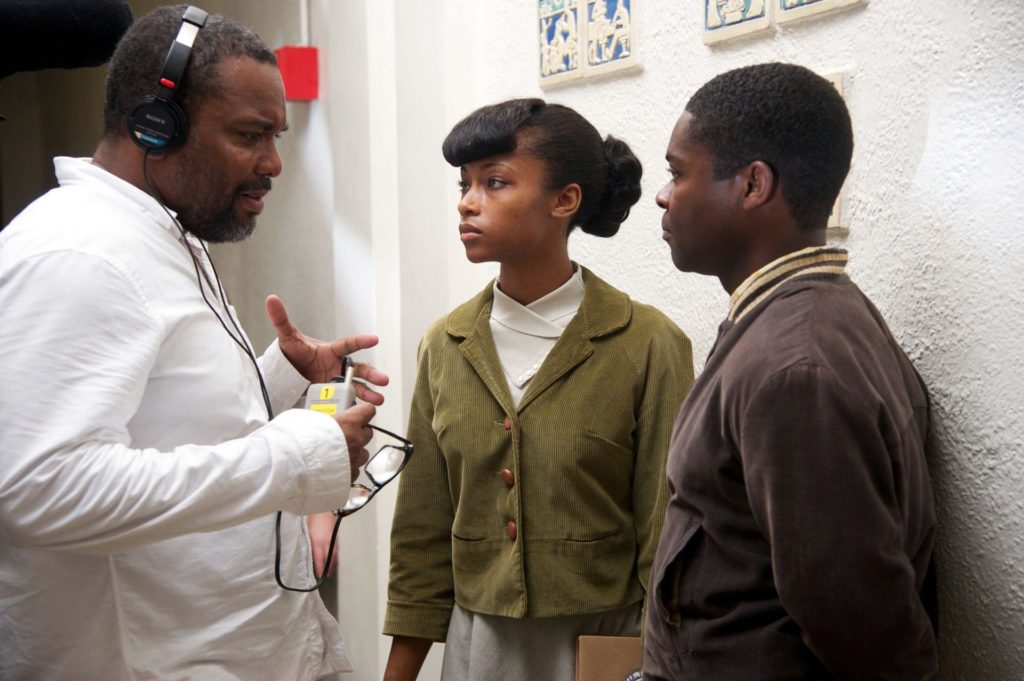
You were finishing the film when the Black Lives Matter protests began last summer. What was your mindset at the time?
When everything jumped off, I was about to turn in my director’s cut. It was weird, because I was in the edit room and my assistant sent me a video of “Strange Fruit” being played in the streets, it was absolutely crazy to think of the timeliness of this all. It was timely 20 years ago. It’ll be timely 20 years from now.
You’re obviously hugely successful, but do you still feel like an outsider? I don’t know of many other gay Black filmmakers in Hollywood. I’ve been told no all my life, for all my movies, because I’m Black, and then because I’m gay. You tell the story God has told you to tell – you are criticized by your own people for doing it—never mind the mainstream.
It’s why I see a lot of myself in Billie. Her way of singing was unconventional, and she wasn’t appreciated until long after her death. I think I’m a little ahead of my time with every film I do. And it’s OK to look at my work, in the present, as being unconventional. More importantly, it’s my mom who counts [laughs]. She loves my work and what I stand for as a gay Black man.
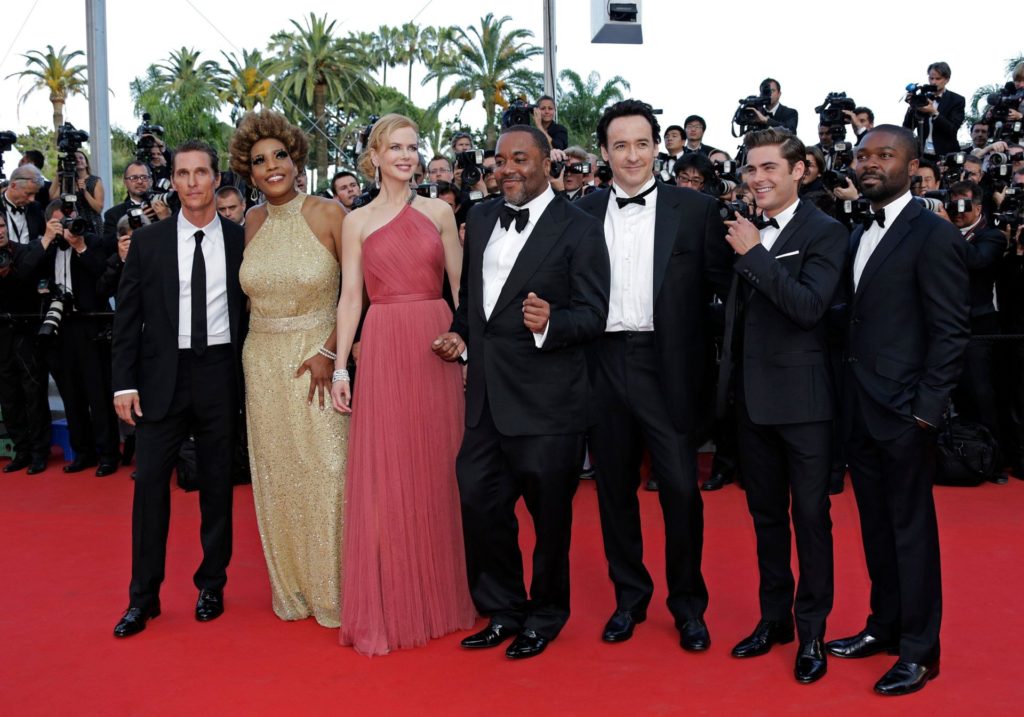
You could make the case that you were at the very beginning of the Black cinematic renaissance, and we’re seeing the result, right now. Have you seen the landscape in Hollywood get easier for Black creators?
Yes. From having Monster’s Ball, and seeing Halle become the first African American Best Actress winner, to Precious, and having the first Black man win an Oscar for screenwriting, and making sure all of my sets looked as Black as can be, even when it was politically incorrect. Or with Empire, making sure my rooms were filled with Black directors. To me, that set the landscape for Black Panther.
You also produced the upcoming Concrete Cowboy, a film about Black cowboys in Philadelphia starring Idris Elba. What drew you to that story?
I wanted to see Black men on horses, man. I want to see Black cowboys. And how often do we see a Black father-son love story? It’s time to make movies about every aspect of our culture imaginable.
Next Up: The Hemi Q&A: Priyanka Chopra Jonas
